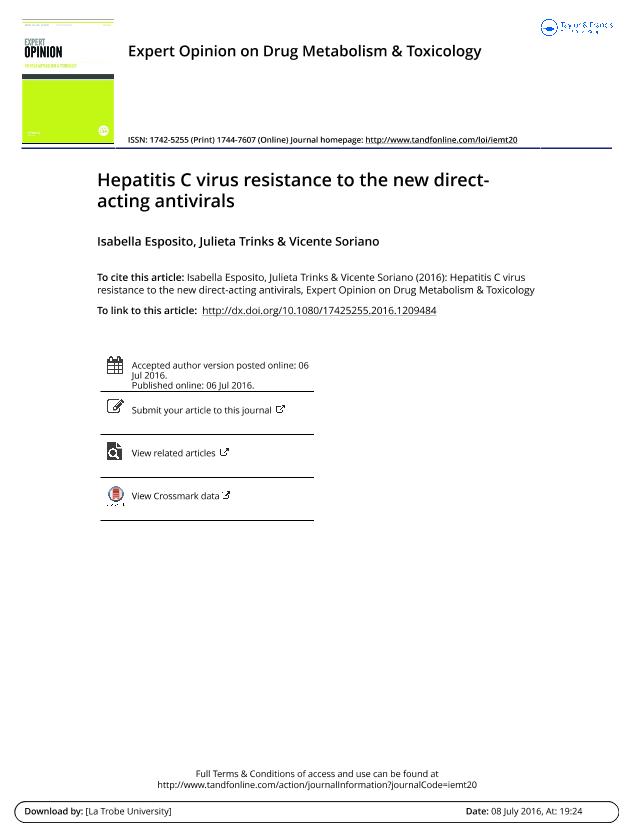Artículo
Hepatitis C virus resistance to the new direct-acting antivirals
Fecha de publicación:
07/2016
Editorial:
Informa Healthcare
Revista:
Expert Opinion on Drug Metabolism & Toxicology
ISSN:
1742-5255
Idioma:
Inglés
Tipo de recurso:
Artículo publicado
Clasificación temática:
Resumen
Introduction: The treatment of hepatitis C virus (HCV) infection has dramatically improved in recent years with the widespread use of interferon-free combination regimens. Despite the high sustained virological response (SVR) rates (over 90%) obtained with direct-acting antivirals (DAAs), drug resistance has emerged as a potential challenge. The high replication rate of HCV and the low fidelity of its RNA polymerase result in a high degree of genetic variability in the HCV population, which ultimately explains the rapid selection of drug resistance associated variants (RAVs). Areas covered: Results from clinical trials and real-world experience have both provided important information on the rate and clinical significance of RAVs. They can be present in treatment-naive patients as natural polymorphisms although more frequently they are selected upon treatment failure. In patients engaged in high-risk behaviors, RAVs can be transmitted. Expert opinion: Although DAA failures generally occur in less than 10% of treated chronic hepatitis C patients, selection of drug resistance is the rule in most cases. HCV re-treatment options are available, but first-line therapeutic strategies should be optimized to efficiently prevent DAA failure due to baseline HCV resistance. Considerable progress is being made and next-generation DAAs are coming with pangenotypic activity and higher resistance barrier.
Palabras clave:
Hcv
,
Resistance
,
Direct Acting Antivirals
,
Treatment
Archivos asociados
Licencia
Identificadores
Colecciones
Articulos(SEDE CENTRAL)
Articulos de SEDE CENTRAL
Articulos de SEDE CENTRAL
Citación
Esposito, Isabella; Trinks, Julieta; Soriano, Vicente; Hepatitis C virus resistance to the new direct-acting antivirals; Informa Healthcare; Expert Opinion on Drug Metabolism & Toxicology; 12; 10; 7-2016; 1197-1209
Compartir
Altmétricas




